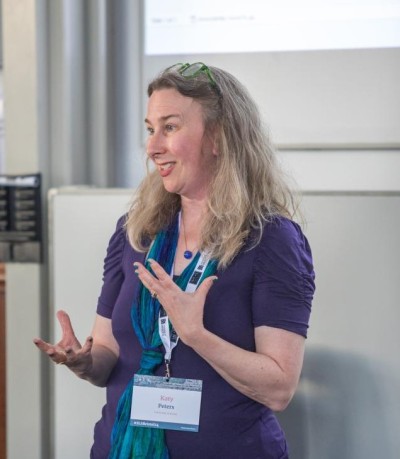Dr Katy Peters speaks at important symposium on consent in medical law
Dr Katy Peters, Associate Professor of Law, was invited to speak at the recent Medico-Legal Society's symposium on consent in medical law. The symposium was held to mark a decade since the landmark Supreme Court decision in Montgomery v Lanarkshire.

Montgomery v Lanarkshire
The Montgomery v Lanarkshire case established a significant precedent in UK medical law regarding informed consent, emphasising the patient's right to be fully informed of risks associated with medical procedures.
The case involved Nadine Montgomery, a woman with diabetes and a small stature, who experienced complications during the vaginal delivery of her son which resulted in her son suffering severe disabilities. Montgomery argued that, had she been informed of the risks associated with a vaginal delivery because of her small stature, she would have opted for a caesarean section instead.
In March 2015, the UK Supreme Court ruled in favour of Montgomery. The court emphasised that the duty of doctors is to ensure that patients are fully informed about the risks of procedures, allowing them to make informed choices about their care. This ruling shifted the focus from a purely medical perspective to one that prioritises patient autonomy and informed consent.
The symposium
The symposium examined ‘Informed consent a decade after Montgomery: progress, pitfalls, and pathways forward’, and was hosted at Gatehouse Chambers.
Dr Peters, whose PhD research investigated the intersection between vulnerability, capacity and autonomy in clinical negligence litigation, laid the foundations of the day giving an overview of why Montgomery vs Lanarkshire became such a landmark case and how the law has developed since.
She was followed by [the original plaintiff] Nadine Montgomery who spoke movingly and powerfully about her story, and her ongoing advocacy for shared-decision making between patients and clinicians.
Delegates heard perspectives from patients, medics, lawyers and ethicists informed important discussion and debate about consent, information and effective participation in healthcare decisions.
The speakers then joined Alison Wright, Consultant Obstetrician and Gynaecologist at the Royal Free London NHS Foundation Trust, for a wide-ranging panel discussion. This included consideration of some excellent questions from attendees about recording decision-making discussions, transparency in clinical reasoning, support for patients who lack confidence to ask questions, the role of technology and digitised records.
Consultant Transplant Surgeon at Guy’s Hospital, Chris Callaghan (paraphrasing George Bernard Shaw!) suggested law and medicine can be two professions separated by the same language.
Dr Peters said: “Improving shared understanding between lawyers, clinicians and patients is an essential part of ensuring effective participation in conversations about decision-making and consent.”
